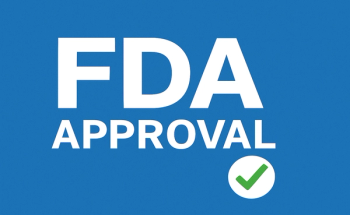
Study Summary: Abemaciclib Monotherapy in Patients With Hormone Receptor-Positive, Endocrine-Refractory, Metastatic Breast Cancer (MONARCH-1)
Background
More than 70% of women with metastatic breast cancer have hormone-receptor positive disease. Although many of these patients initially respond to endocrine therapies, a majority eventually develop endocrine resistance and experience disease progression. In current practice, patients experiencing disease progression are treated with cytotoxic chemotherapy, which is marginally effective and associated with toxicities that are treatment-limiting and impair quality of life. Thus, treatments with novel mechanisms of action that have proven efficacy and lack many of the treatment-limiting toxicities associated with cytotoxic chemotherapy are needed. Data suggest that the use of cyclin-dependent kinases (CDK) inhibitors, such as abemaciclib, that inhibit cell cycle progression may represent a viable option.1
Abemaciclib is an orally administered, selective CDK-4 and -6 inhibitor that is structurally distinct from other CDK-4 and -6 inhibitors. In a phase 1 study, abemaciclib demonstrated clinical activity in patients with hormone receptor-positive metastatic breast cancer. In this study, the dose-limiting toxicity was grade 3 fatigue.1
Study Design
The MONARCH-1 trial is a phase 2, single-arm, open-label study that evaluated the single-agent activity and adverse event (AE) profile of abemaciclib in women with refractory, hormone receptor-positive, human epidermal growth factor receptor (HER) -2 negative, metastatic breast cancer. Patients were required to have progressed on or after endocrine therapy, with at least 1 therapy, but no more than 2, having been administered in the metastatic setting. It was required that 1 regimen include a taxane, either in the adjuvant or metastatic setting. Patients received abemaciclib 200 mg orally every 12 hours. Dose reductions (in 50 mg increments) and dose interruptions were permitted. Abemaciclib was continued until disease progression or the presence of unacceptable toxicity. Patients were followed until death or overall study completion, which occurred 18 months after the last patient was enrolled.1
The primary endpoint was investigator-determined, objective response rate ([ORR] complete responses plus partial responses). Secondary endpoints included safety and tolerability, overall survival (OS), duration of response ([DoR] time from complete response or partial response until progressive disease or death), progression-free survival (PFS), disease-control rate ([DCR]; complete responses + partial responses + stable disease), and clinical benefit rate (CBR). An independent review of all investigator-determined tumor response parameters also occurred.1
Baseline Characteristics
All patients had measurable disease. Overall, 90.2% of patients had visceral disease; 50.8% of patients had ≥3 metastatic sites. Liver and bone were the most common sites of metastases (70.5% and 62.1%, respectively). In the metastatic setting, patients received a median of 3 prior lines of systemic therapy, including 1 median line of chemotherapy and 2 median lines of endocrine therapy.1
Efficacy
A total of 132 patients were enrolled and received treatment with abemaciclib. At 12 months, ORR was 19.7%, DCR was 67.4%, and CBR was 42.4%. Best responses to therapy were partial responses (19.7%) and stable disease (47.7%). Stable disease for ≥6 months was reported in 22.7% of patients; there were no complete responses. Progressive disease was reported in 25.8% of patients and 6.8% of patients were not evaluable. The median time to response was 3.7 months and the median DoR was 8.6 months. No patient characteristics (eg, baseline demographics, and prior therapies received) were identified that distinguished patients who rapidly progressed on therapy from those who did not rapidly progress. Median PFS was 6.0 months and median OS was 17.7 months, with 47 events occurring. Results via independent review were comparable to these investigator-assessed findings.1
At 18 months, a final analysis was conducted. In this analysis, median OS was 22.3 months, with 62 events occurring. The data for the other endpoints were consistent with the 12-month analysis.1
Safety
Treatment-emergent adverse events (TEAEs) were reported in all patients. The most commonly reported TEAEs (any grade) were diarrhea (90.2%), fatigue (65.2%), nausea (64.4%), and decreased appetite (45.5%). Serious AEs were reported in 24.2% of patients. Increased blood creatinine levels, which were reported in 97.7% of patients, were the most commonly reported laboratory abnormality; all events were grade ≤2. Decreased neutrophil counts were reported in 87.7% of patients; the majority were grade ≤2, 22.3% were grade-3, and 4.6% were grade 4. Overall, 31.1% of patients experienced an infection, with the majority being low-grade infections. A relationship between infection and severe neutropenia was not established.1
Abemaciclib dose reductions, interruptions, and discontinuations due to AEs were reported in 49.2%, 57.6%, and 7.6% of patients, respectively. Diarrhea and neutropenia were the most common causes of dose reductions and dose interruptions.1
Three grade 5 events were reported. One event, pneumonitis, was deemed possibly related to study drug; the other 2 events were not considered to be treatment-related.1
Conclusions
When used as a single agent, abemaciclib demonstrated clinical activity in patients with hormone receptor-positive, HER-2 negative, metastatic breast cancer who had received prior chemotherapy in the metastatic setting. Abemaciclib was generally well tolerated with the most frequently reported TEAEs being diarrhea, fatigue, nausea, and decreased appetite.1
Reference
1. Dickler MN, Tolaney SM, Rugo HS, et al. MONARCH 1, A phase II study of abemaciclib, a CDK4 and CDK6 inhibitor, as a single agent, in patients with refractory HR(+)/HER2(-) metastatic breast cancer. Clin Cancer Res. 2017;23(17):5218-5224. doi: 10.1158/1078-0432.CCR-17-0754.
Newsletter
Stay ahead of policy, cost, and value—subscribe to AJMC for expert insights at the intersection of clinical care and health economics.








